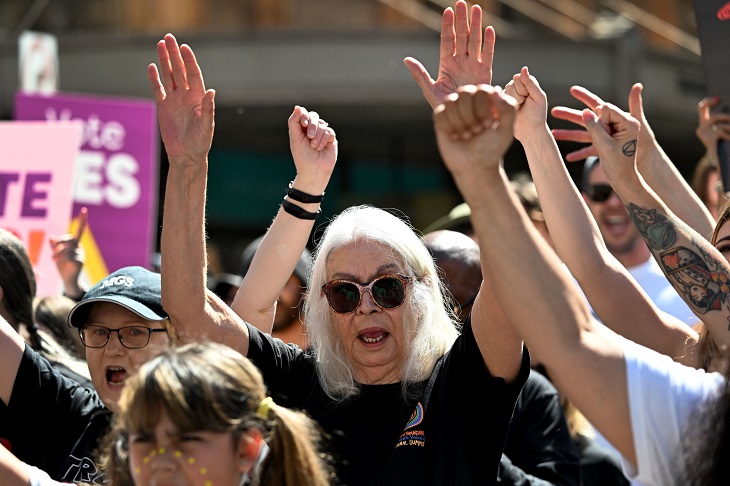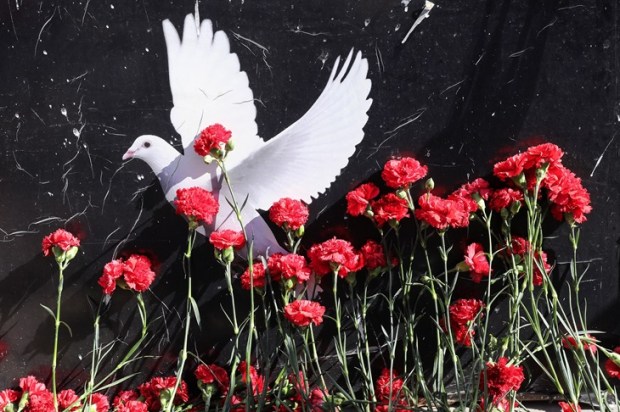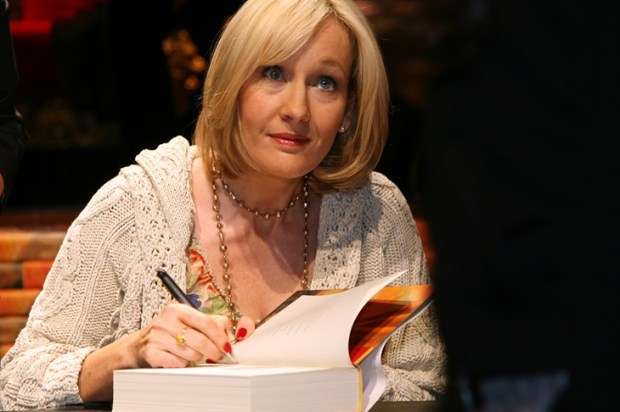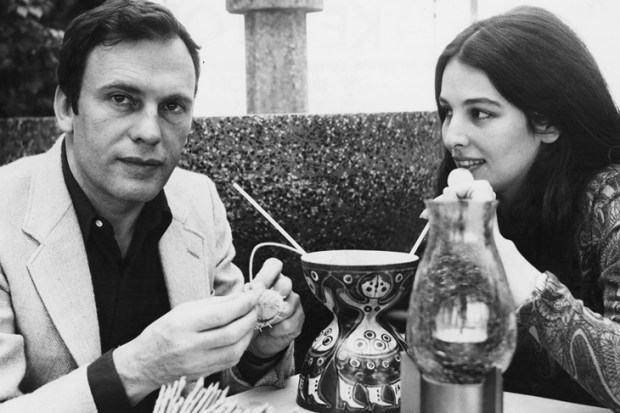There’s a very important message I want Indigenous Australians to hear.
If the ‘Yes’ vote is unsuccessful in the Voice referendum, it will be because millions and millions of Australians do not want to see First Nations People separated from Australia but rather embraced and loved as Australians. We don’t want to see Indigenous Australians languishing as victims forever from birth, but rather be equals. And we don’t want Indigenous people to think that they have no power over their own destiny as written in the Uluru Statement from the Heart.
So if the ‘No’ vote gets up, please understand, we see you, we hear you, and we are with you.
If this referendum is about ‘truth telling’ we’re going to have to tell the whole truth. There’s one person Australia needs to be thinking about during this Voice debate and that is the 20-year-old Indigenous mother who lives in a remote community and may very well experience domestic violence tonight.
There’s a critical flaw in the Voice. It does not recognise a one-person-one-vote philosophy, as with similar proposals around the world including Canada. As Australia’s first Indigenous Senior Counsel, Anthony McAvoy said, ‘Aboriginal people already know who their leaders are.’ Unfortunately, as Senator Jacinta Nampijinpa Price points out, sometimes that leadership comes out of fear and intimidation. This means the power structure presiding over that young mother’s misery can be entrenched through the Voice. She doesn’t get a say, which could very easily make her situation worse.
Those that raise these critical issues are immediately called ‘racist’ by activists.
A similar thing happened to Opposition Leader Peter Dutton when he used the word ‘squalor’ to describe the atrocious living conditions of some Indigenous peoples.
It’s reasonable to assume that instead of admitting there’s an issue in remote communities, activists will put a wall up and say, ‘Go anywhere near this issue and you’re a racist.’ Meanwhile, behind that ideological wall, people are suffering. That strikes me as not just negligent but inhumane.
I suggest many Australians will vote ‘No’ because they do care about the most marginalised Indigenous women and children, while the architects of the Voice seem preoccupied with concepts such as ‘Treaty’ and ‘Truth’. And that’s why support has fallen.
It’s worthwhile charting the course that I believe Australia has been on. Initially we saw the horrors of Alice Springs and thought, ‘These people need help. I’ll vote ‘Yes’,’ resulting in 63 per cent approval.
But as time went on we learned of ‘Treaty’ and ‘Truth’ and Australia said, ‘Sorry, what?’
We learned that ‘Treaty’ was all about separatism and Australia didn’t like that because we see Indigenous people as Australians, not to be divided in any way.
Then we learned that ‘Truth Telling’ blames the original sin of colonisation for all current problems.
It’s fair to say that Australians are aware of the impact of colonisation. Many of us are either too scared or ashamed to say ‘Happy Australia Day’. We’re just not sure how wielding the weapon of historical white guilt is going to unite Australia as we’ve been promised.
Activists will say, ‘Because you must accept the past to move forward.’
But from an Australian perspective, we have been moving forward in the spirit of reconciliation for decades and continue to daily: Mabo was a big step forward; 55 per cent of Australia is now Indigenous-owned; there was the 2008 apology to The Stolen Generation, (which we can now only assume was not accepted); there are Indigenous ministers, state and federal; there are over 3,000 Indigenous organisations; around $30 billion a year goes toward Indigenous issues; there is the ubiquitous Welcome to Country; and the effect of colonisation on First Nations People is taught in schools.
Yet now we’re told we need a Voice because we need to begin reconciliation.
And there’s another issue that Australians intuit: the racism that sits beneath this claim sometimes referred to as the ‘soft bigotry of low expectations’ which Noel Pearson described as a ‘form of prejudice that wreaks a massive toll on the marginalised’.
Are we to think that First Nations people are so lacking in resilience that they are unable to rise above intergenerational trauma as have many other cultures and races?
80 per cent of Aboriginal people living in urban areas are living regular middle-class lives, it’s the 20 per cent in remote communities that are the most marginalised and desperately need our help.
How will further entrenching white guilt through ‘truth telling’ help those people where surely the tyranny of distance is a contributing factor, not purely the effect of colonisation…
I have a challenge for Indigenous activists. If modern Australians can accept colonisation destroyed Indigenous culture, can you tell us how obsessing over historical guilt helps Indigenous people today?
While activists are focused on blaming previous generations for the problems of today, they are not creating solutions. They need to be aware that future generations will judge them for obsessing on the past instead of the present.
Right now an Indigenous mother is wondering whether she’ll be able to sleep safely tonight with her baby. Forgive me for saying, but ‘treaty’ and ‘truth telling’ are indulgent objectives when weighed up against this.
And if we are to tell the truth of history may we tell the actual truth?
A Christian moral revolution swept Britain in the early 1800s, culminating in the ending of the slave trade by George III resulting in the understanding that Indigenous peoples were free men and women and had the same rights as anyone else under the Crown and were not to be harmed. Atrocities happened that still haunt the nation’s soul. No one is denying that. But this was not a state-sponsored genocide as claimed. Early colonists were trying to build a nation. When they met with resistance, it sometimes resulted in Indigenous deaths and that is tragic. But when stockment took the law into their own hands they were hanged, as in the case of the Myall Creek Massacre.
So what truth will be told to our children? That their ancestors were nothing but villains and murderers, that they should be ashamed of Australia and of their skin colour?
Will the story be told that in many cases people of all ethnicities worked together to build a nation built on the sanctity of the individual?
While the Voice seems to be retribution for the original sin of settlement, we must be realistic that history was always going to happen.
What is the focus within the Statement from the Heart?
I have done what Megan Davis the co-author of the Voice urged me and all Australians to do on 12 occasions, which is read the full 18-page statement, (which is actually 26 pages obtained under a Freedom of Information Act).
As I’ve written, this could be more accurately described as the ‘Statement From the Head’ because it gives a full insight into the activist mind.
And it is the exact opposite of extending ‘the hand of friendship’.
There’s talk of reparations, and land rights, which we’re already seeing. It’s about ‘invasion day’, the ‘evil’ of colonisation, ‘relentless inhumanity’, ‘dispossession’, ‘stolen land’, ‘separatism’, and that Australian society generally needs to ‘work on itself’.
It’s an ideological manifesto, the theme of which is grievance, resentment, and retribution where politicians can be punished for disagreeing.
And to be clear, I don’t believe that the majority of Indigenous Australians are walking around with this seething bitterness in their hearts.
The core problem is that the Voice is an ivory tower solution to a grassroots problem.
Along with political division between left and right, there has emerged another divide: between elites and non-elites. And these elites need a victim class so they can say to the rest of us, ‘Give us all the money and all the power, because only we know how to solve this.’
The Voice runs with an agenda that is anti-western, anti-democratic, anti-Australian activism – a power play focused on victimhood.
Marcia Langton recently spoke about the need for Australia to embrace Anti Racism, (the political ideology, not the general concept) which has its roots in Critical Race Theory, which spawns from Cultural Marxism.
Thomas Mayo, who pays homage to communism, says the voice is the first step to ‘tearing down institutions’.
Megan Davis said the voice is ‘utterly consistent with Black Lives Matter’, itself a Marxist organisation that aims to, amongst other things, disband the nuclear family.
Regrettably, the priorities are not, ‘Voice, Accountability, Outcomes’.
Indigenous Australians deserve better than the Voice, they deserve a Royal Commission into why $30 billion a year hasn’t achieved results. And it’s not so much the money that’s a concern, it’s the lack of outcomes.
So, why vote ‘Yes’?
It’s fair to say that some ‘Yes’ voters enjoy the delightful fantasy that Australia is a ‘swamp of racism’ as Marcia Langton said, and they’re the only ‘good’ people.
‘Yes’ voters bristle when you raise the possibility that the vast, vast majority of Australians are kind and lovely who want only the best for Indigenous peoples.
And tension certainly arises when you suggest they might not hold the high moral ground.
Because what many can’t seem to accept is the love coming from the ‘No’ side.
We see First Nations people as Australians, and as equals, not as victims. We certainly do not see Indigenous Australians as ‘powerless’, or lacking power over their destiny as First Nations leaders wrote about their own people in the Statement from the Heart.
I suggest to the proud Indigenous people of Australia that perhaps you need new leaders.
And I say to Marcia Langton, I’ll be voting ‘No’ because I’m not racist.
Got something to add? Join the discussion and comment below.
Get 10 issues for just $10
Subscribe to The Spectator Australia today for the next 10 magazine issues, plus full online access, for just $10.


























Comments
Don't miss out
Join the conversation with other Spectator Australia readers. Subscribe to leave a comment.
SUBSCRIBEAlready a subscriber? Log in